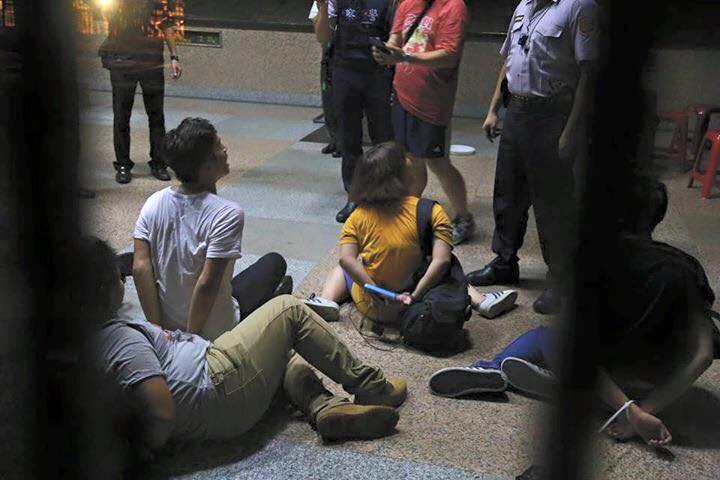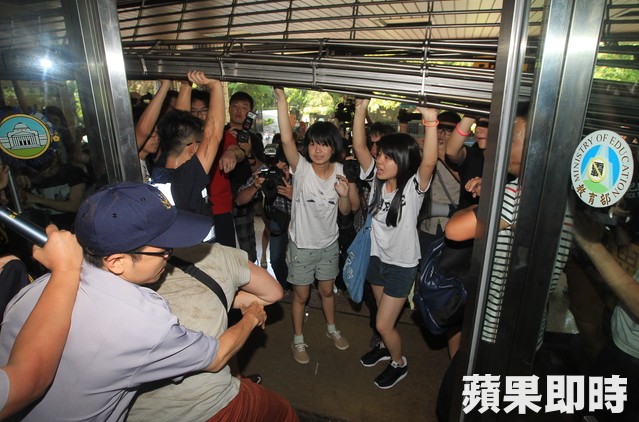Around 30 Taiwanese students have been arrested after forcing their way into a government building to oppose a set of high school curriculum guidelines that are widely regarded as China-centric. Three reporters have also been taken away.
More than 200 students surrounded the education ministry building in Taipei and clashed with police on Thursday evening, according to Taiwanese newspapers. Around 50 climbed over the fence and occupied the minister’s office just before midnight.
In a video shot by a demonstrator, two students are seen being dragged away by police, while others shout slogans asking the minister to “respond immediately” to students’ demands.
As the cameraperson is being taken away, she is heard saying, “Please don’t use violence. Don’t touch me.”
警察是這樣對待手無寸鐵的學生的
Posted by Fanny Tsai on 2015年7月23日
Taiwan newspaper Liberty Times issued a statement expressing “strong objection to the police’s act of restricting press freedom”, after one of its reporters was taken away while covering the protests. The newspaper said it had been unable to contact the reporter since Thursday evening.
Dozens of protesters remained outside the complex on Friday morning to demand the release of the students and journalists.
The education ministry said that it would pursue legal action against those who broke into its building and damaged public property. It urged students to express opinions in a peaceful manner.
The protests came after student activists declared talks with government officials on Thursday evening a failure. “We students could no longer stand the attitude of the officials, who have never taken our opinions against the government’s ‘black box’ (non-transparent) policy making process seriously,” one of the student groups said in a statement.

Taiwan’s current government, led by President Ma Ying-jeou of the pro-reunification Kuomintang (KMT), has made a series of changes to high school curriculum guidelines since Ma took office in 2008. In 2014, authorities announced new adjustments to the guidelines that were widely considered China-centric.
Ma reversed some of the curriculum changes made under the Democratic Progressive Party (DPP), which governed the island nation from 2000 to 2008. Subtle changes in wording reflected the DPP’s pro-independence stance: Tang Dynasty poet Li Bai was referred to as a “Chinese poet” rather than “a poet of our country”; Hainan, rather than Taiwan, was described as “China’s biggest island”; and geography textbooks taught students that their country was only as big as the island of Taiwan, omitting mainland territories which are still claimed by KMT diehards.
A number of protests have taken place in response to the perceived “black box” policy making process of the Taiwanese government. Around ten students broke into Taipei’s Education Administration building last week, but none were arrested. Student groups had promised to step up the campaign.

On July 5, around 100 high school students from central and southern Taiwan protested at the Education Administration building in Taichung to demand the withdrawal of the curriculum guidelines.
Supporters of the new curriculum guidelines said that the changes are in accordance with the constitution. A journalist for United Daily News wrote that changes such as referring to China as “mainland China” rather than “the mainland” prove that the new guidelines are not China-centric.
DDP’s presidential candidate Tsai Ing-wen, tipped to win next year’s presidential poll, has shown her support for the students earlier. “We believe that the curriculum must correspond with historical truth, and the procedure of making new guidelines must be objective and professional,” Tsai wrote. “If the current government is unwilling to make corrections, we will take up the responsibility next year.”
